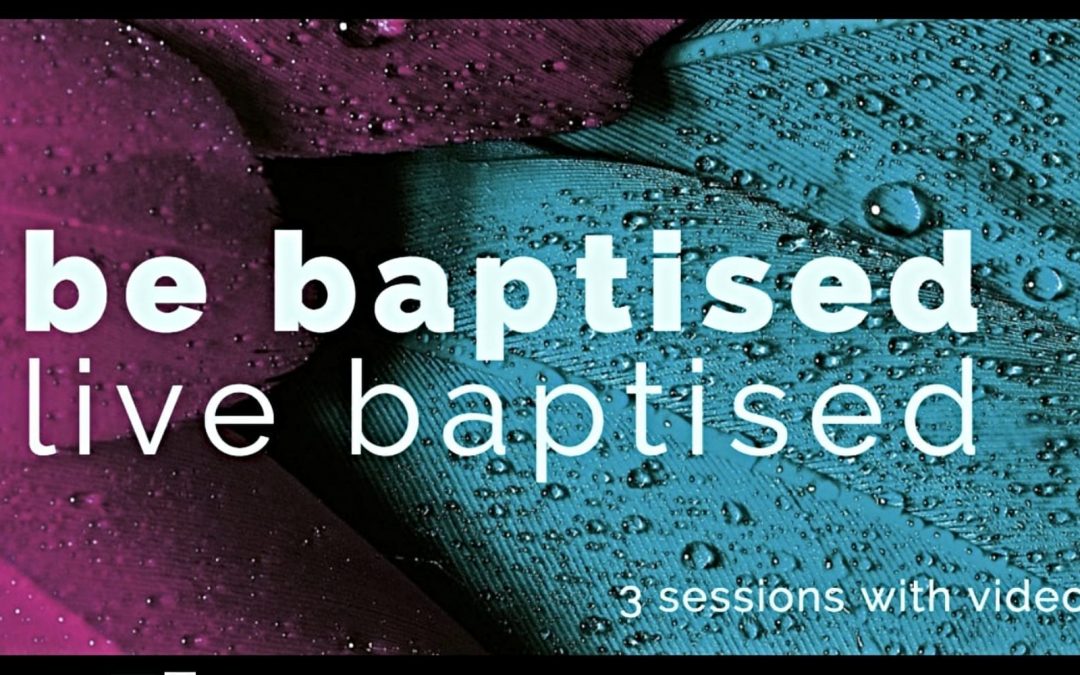Has anyone else noticed that we seem to have a paradox on our hands today when it comes to baptism?
On the one hand, we have people being baptized left, right and center because they see it as “just something you do,” perhaps a coming-of-age rite or an anemic religious nicety, which is promptly and politely forgotten about the second it is through.
On the other hand, other people are putting off baptism longer and longer, perhaps indefinitely, because they want to be really sure “they are ready” (whatever that’s supposed to mean) before they take the plunge.
Incidentally, it’s almost exactly the same problem we face when it comes to weddings and marriage and causes all sorts of problems.
The phenomenon suggests a good deal of confusion about what baptism means, and therefore by extension, what it means to be a Christian.
We don’t have enough people intentionally spelling it out for us with their lives; as a result, what is meant to be a rich and robust symbol at the heart of discipleship is sidelined and emptied of its power.
When a person steps forward and says he or she is starting to think seriously about being baptized, we are potentially witnessing a miracle.
They are responding to the Spirit’s nudgings and responding in obedience to the message of Jesus. They are putting down their “fishing nets” and following him.
In baptism, that person is saying, “By the grace of God, I will follow Jesus to the death.” A dramatic thing to say and do.
It is sad when that statement is stillborn. We need to avoid that, helping those starting out to grasp what it is they are doing.
Baptism is not “just something you do,” a coming-of-age rite. It should not be portrayed as a disconnected event, but the beginning of a certain kind of life.
If you think about it, baptism carries more weight than a wedding (although there’s another emasculated ceremony), so why do we continue to allow it to be seen as such?
It is our hope that the “Be Baptized, Live Baptized” resource might play a small part in reclaiming baptism and rejuvenating the ancient art of “catechesis” – the resourcing of new Christians for the life ahead of them.
In recent history, preparation for those thinking about being baptized has typically taken the form of sessions in which individual baptismal candidates, or groups of them, have met up with their local church leader to talk about what baptism means and to discuss the practicalities of the process.
The number of sessions may vary in number, length and content from church to church.
This course, if we must call it that, is designed to be used in such local settings – providing resources to enrich and enhance what you already do.
You are utterly free to adapt the material as you see fit, to pick and mix. The worst-case scenario for us is that these resources will be used in a packaged and formulaic way, which doesn’t tailor the process to the people before you and the church you are.
A resource of material such as this is meant to empower and equip, as well as to release time and energy to plough into a more creative and holistic roadmap for new disciples.
A key question is this: How can we ensure that baptism preparation is not experienced as a hit-and-run affair but rather as a milestone in an ongoing movement of discipleship? Not just a matter of being baptized but of living baptized for the long haul.
The suggestion that comes with this material is to be bold in imagining and implementing new ways of interlacing baptism into your church’s ongoing structures of discipleship.
How will it interact with your church’s missional engagement, community meetings/services, small groups and so on?
One key way in which this might be done is to link up each baptismal candidate with a guide or mentor. In many ways, the who of this process is more important that the what.
Videos and crib sheets are great, but this resource must be secondary to the task of placing new Christians near experienced followers of Jesus.
This isn’t a new idea, in the centuries immediately following Jesus, catechumens (people preparing for baptism) were provided with a “sponsor” or “God parent” who would guide them through the process and journey with them closely afterward too.
This is much more than a “towel bearer.” It is someone who facilitates the apprenticeship of the new believer, helping them to learn the craft of a Jesus-centered life.
Such a mentor (or whatever you choose to call them in your church) would journey with the candidate during their exploration of baptism before the event but also continue meeting with them in the months and years afterward as they both work out together what baptism really means through their lives.
An inevitable side effect of such a partnership, when done properly, will be the revitalization of the mentor’s own journey of discipleship as they are led into challenging new territory by the person they are discipling.
Another effect when intentional relationships start forming is the rejuvenation of the church’s work and witness.
Editor’s note: A version of this article first appeared in The Baptist Times, the online newspaper of the Baptist Union of Great Britain. The article is taken from the course, “Be Baptised Live Baptised,” a free video course to help prepare people for believer’s baptism. It has been prepared by Church from Scratch and is used with permission. All resources, including videos and leaders’ guide, can be found here.
Church from Scratch is a vibrant community of people in the U.K., united in its desire to embrace and express new ways of following Jesus, full of hope and wanting to make a difference in the world.


